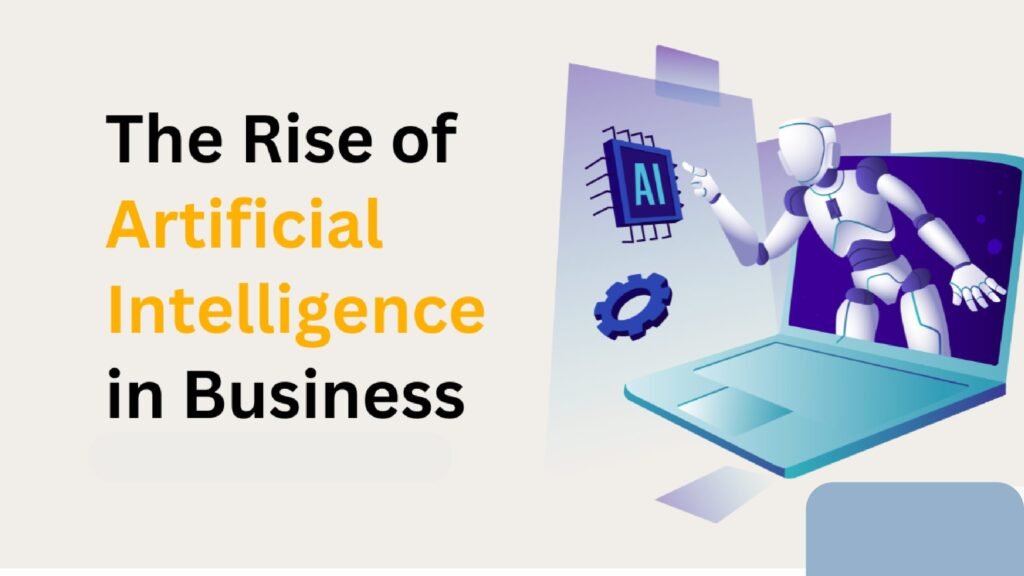Why Your Business Needs an AI-Driven Creative Strategy in 2025

The future of business is here, and it’s powered by AI. In a rapidly evolving marketing landscape, adopting an AI-driven creative strategy is no longer just an option; it’s a necessity for brands looking to stay competitive by 2025. This blog will delve into how AI solutions for business are transforming creative branding and marketing. You will learn how companies effectively leverage these advanced tools to enhance performance and application strategies that can facilitate seamless implementation.
The Rise of AI in Business
Understanding AI-Powered Marketing
AI-powered marketing refers to utilizing artificial intelligence technologies to automate, analyze, and enhance marketing campaigns and strategies. This innovation is crucial across diverse industries as it enables businesses to make informed decisions, analyze consumer data, and predict market trends effectively. With the increasing complexity of consumer behaviors and preferences, brands are increasingly turning to AI to make sense of vast amounts of data.
According to recent statistics, nearly 75% of enterprises are already implementing AI solutions in their marketing strategies as of 2025. This trend showcases a remarkable shift towards automation, where businesses can deploy AI-powered tools for personalized marketing approaches, thus enhancing customer experiences and brand loyalty. As such, understanding AI-powered marketing becomes essential for businesses seeking to thrive in an increasingly competitive landscape.
The Benefits of AI Solutions for Business
Integrating AI into business strategies unlocks several advantages for organizations. Primarily, AI enhances decision-making processes by providing accurate data analysis and insights that guide marketing campaigns. With AI’s capacity to streamline operations, companies can improve efficiency and ultimately reduce costs associated with manual processes.
For instance, a renowned consumer goods company adopted AI solutions to forecast demand accurately, resulting in a reduction of inventory costs by 30%. Such case studies underline the transformative potential of AI, showcasing significant outcomes, including revenue growth and enhanced customer engagement. Businesses, therefore, should recognize the value of implementing AI solutions as part of their strategic framework.
Elevating Creative Branding with AI
The New Role of Creative Branding Companies
Creative branding companies are experiencing a paradigm shift as they harness AI technologies to redefine brand identity and customer perceptions. This evolution is driven by data-driven insights that enable brands to craft personalized experiences tailored to specific audiences. By leveraging AI, branding firms can analyze consumer behavior and preferences at scale, leading to informed decisions that resonate well with their target market.
Furthermore, understanding consumer sentiment has become more sophisticated with AI’s ability to analyze massive amounts of feedback. By applying machine learning algorithms, brands can glean insights about customer preferences in real-time, refining creative processes to enhance brand equity and awareness. In this light, the collaboration between AI and branding has elevated marketing performance to unprecedented levels.
Automation and Optimization in Brand Strategy
The rise of automation, powered by AI, can dramatically streamline creative processes—from content generation to managing social media campaigns. AI tools can generate engaging content at a rapid pace, thus reducing the time spent on content creation and enabling marketers to focus more on strategy and creativity.
Moreover, optimization techniques facilitated by AI allow businesses to analyze campaign performance continuously. By leveraging real-time data, brands can adjust their strategies promptly, ensuring more impactful campaigns that yield better results. These tools lead to true marketing optimization, allowing brands to stay agile in a constantly changing marketplace.
Key Components of an AI-Driven Creative Strategy
Data Gathering and Analysis
A robust AI-driven creative strategy hinges on effective data gathering and analysis methods. Organizations need to prioritize gathering substantial amounts of data, including customer feedback, behavioral insights, and even competitive benchmarks. Understanding what drives your audience helps in crafting a targeted approach that resonates effectively.
Best practices for data utilization include implementing customer relationship management (CRM) systems, and analytical tools to gain actionable insights. By leveraging gathered data, companies can refine their creative strategies, optimizing their marketing efforts to better serve customer expectations.
Content Creation and Personalization
AI technologies are revolutionizing the way content is created. Automated tools can produce compelling articles, craft social media posts, and even generate captivating visual content tailored to resonate with target audiences. This revolution brings forth significant efficiency improvements as brands can harness AI to maintain a consistent content output.
Personalized content experiences powered by AI further enhance audience engagement. By recognizing individual preferences and behaviors, AI-driven tools can curate content that meets customer needs, thus maximizing the likelihood of conversions and fostering deeper relationships with consumers.
Challenges of Implementing AI Solutions
Navigating the Learning Curve
Though the benefits of AI adoption are substantial, businesses often face challenges when integrating these tools. Common obstacles include a steep learning curve and potential resistance from team members who may feel threatened by changing dynamics. Therefore, anticipating these challenges is essential for a smooth transition.
To overcome these hurdles, organizations should invest in training programs to familiarize employees with AI tools and technologies. Additionally, choosing user-friendly AI solutions will make the implementation process more manageable, ensuring that team members feel supported throughout the transition.
Ethical Considerations and Brand Trust
As businesses integrate AI into their operations, ethical considerations must remain a priority. Ensuring transparency and fairness when using AI in branding and marketing is essential for maintaining brand trust. This is particularly important in an era where consumers are becoming increasingly aware of privacy concerns and data ethics.
Brands can build trust with consumers by communicating openly about how AI is utilized, stressing commitment to ethical practices, and ensuring that consumer data is handled transparently and responsibly. Establishing these ethical standards will forge deeper connections with audiences in an AI-driven landscape.
Future Trends in AI-Driven Creative Strategies
AI and Consumer Behavior
The evolving nature of AI will continue to shape consumer behavior and expectations significantly by 2025. Recognizing patterns in consumer behavior and preferences will enable brands to tailor their marketing efforts more effectively, thus delivering highly targeted messages. As AI becomes more predictive in nature, businesses can anticipate market trends and consumer needs, leading to enhanced customer engagement.
Furthermore, AI technologies enable marketers to streamline strategies in real-time, ensuring agility in communication and brand interactions. This responsive approach cultivates deeper connections with customers, enhancing the overall brand experience and facilitating long-term loyalty.
The Evolution of Brand Storytelling
In the context of storytelling, AI is set to revolutionize how brands craft narratives. With AI’s data-driven capabilities, brands can create personalized stories that genuinely resonate with consumers at a deeper emotional level. This evolution of storytelling promises not only to capture consumer interest but also to foster lasting connections that enhance brand loyalty.
As AI continues to transform the landscape of storytelling in branding, marketers must adapt their strategies to leverage this innovation effectively. Success in creating individualized narratives will hinge on brands’ ability to tap into consumer emotion, driving long-term loyalty and encouraging market growth.
Conclusion: Embrace the AI Revolution for Business Success
In summary, the integration of AI-driven creative strategies is imperative for businesses aiming for success by 2025. The transformative nature of AI solutions for business can elevate marketing performance, enhance brand identity, and engage consumers more meaningfully. As established throughout this blog post, adopting AI-driven strategies positions brands favorably within an increasingly competitive landscape.
We want to hear from you! How do you think AI will impact business and marketing strategies in the near future? Share your thoughts or experiences in the comments below!




